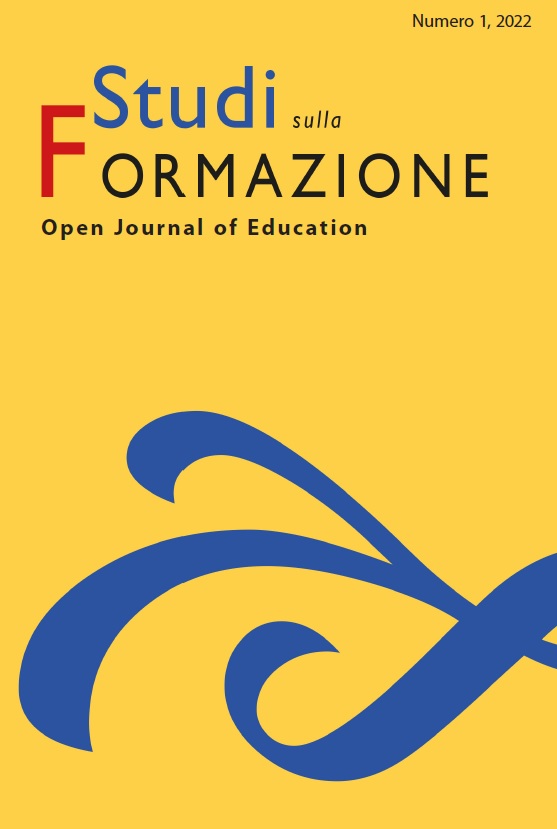Formazione in letteratura per l’infanzia e “temi difficili”. La parola metaforica e la complessità letteraria
Published 2022-07-20
Keywords
- Children’s Literature,
- Difficult Themes,
- Childhood,
- Adult
How to Cite
Abstract
Starting from the complex vision of critical studies in children's literature, the contribution examines the issue of "difficult themes" in children's books. As it has often emerged during many training experiences with figures involved in the educational relationship - such as educators, teachers, librarians, artists, etc. - these themes are considered difficult by adults, who often react with resistance and refusal. The expression "difficult themes" is used to summarise the variety of experiences that could be lived facing death, fear, pain, abandonment: adults often prefer to escape and deny, subtracting meaning and deepness from stories that otherwise would be capable of recounting the sphere of the negativity of existence. Indeed, the best children's literature, historically, assigns to the narrative word the subversive possibility to bring the young readers closer to those painful themes. The contribution explores this strong contradiction through the analysis of the text as a metaphorical narration that creates plastic, yet tolerable images, even of painful experiences. The process of muting the words needed to talk about “difficult themes” demands a reflection on the quality of the relationship between childhood and adults, while children's literature expresses the symptoms of deep-rooted uncertainties about who children really are.


